





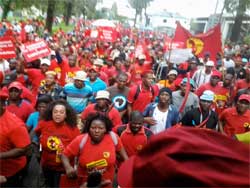
Ford Motor Co celebrated a local milestone last week: production of its three-millionth vehicle engine at its Struandale in Port Elizabeth.
At about the same time, down the road at the Coega deepwater harbour industrial development zone, President Jacob Zuma was cutting a ribbon to mark the completion of the first vehicle built by Chinese company FAW at its new R600m truck assembly plant.
At both events, senior foreign executives expressed their commitment to SA and their admiration for local workers. On the record, they could see nothing but market growth and common prosperity. But take away the microphones and prepared speeches, and you are likely to find a different mood inside the motor industry.
It's bad enough that domestic sales of new vehicles are down and unlikely to recover soon, as economic uncertainty and rising indebtedness and interest rates take their toll on consumer confidence. But that's cyclical. The market will bounce back. The same can't be said with any certainty about foreign investor confidence.
The latest National Union of Metalworkers of SA (Numsa) strike, which has caused most vehicle manufacturers to suspend or scale back operations, again raises the question: How much aggravation are investors prepared to take?

Mercedes-Benz SA (MBSA) Chief Executive Arno van der Merwe says that multinational motor companies are used to labour issues in various countries in which they operate. He says: "Different countries have different and complex issues. SA is one. There is not a perception that this is a uniquely challenging situation or that this is a risk to our investment."
But then he adds: "No-one wants to accept we are having more industrial action after what we experienced last year."
He refers to the dual strikes that shut down the industry for seven weeks in August and September 2013. Local motor companies' foreign owners might just have accepted the first strike, the result of a breakdown in three-yearly negotiations between Numsa and vehicle assemblers. But it was the next few weeks that rankled, when Numsa called members at automotive components suppliers to go on strike, thus denying assembly plants the vital components they needed to build vehicles.
It is the same now with Numsa strikes at steel and engineering companies. Only a small percentage of these companies supply motor companies but, as Volkswagen SA's Managing Director David Powels says, you can't build a vehicle without all of the parts.
In two of the three strikes therefore - and there have also been several localised disputes - vehicle manufacturers have not been part of the argument but have become what one might call "collateral damage".

What rankles even more among some executives is that the latest strike appears to be as much about politics as about labour. Numsa is at odds with both the ANC and the umbrella labour body, the Congress of SA Trade Unions (Cosatu).
It is also anxious to avoid the fate of the National Union of Mineworkers (NUM), which has lost membership to the more aggressive Association of Mining & Construction Union (Amcu).
Says Powels: "A lot of this is Numsa making sure it doesn't become an NUM."
Though there appears to be no question at this stage of disinvestment by any of SA's seven full-scale vehicle manufacturers - BMW, Ford, General Motors, Mercedes-Benz, Nissan, Toyota and Volkswagen - there is a sense that these companies may reconsider the scope of their presence here. BMW and Datsun, Nissan's reinvented entry-level brand, admit that plans to build new cars in SA were put on hold because of the uncertain labour environment.
The cars would have been mainly for export but the companies say they can't risk an unreliable workforce. Last month, Datsun's global head, Vincent Cobee, expressed regret at having to bypass SA for the Go car, which is designed for emerging markets and will go on sale in SA in a few weeks.
The first generation of the car will be imported from India but Cobee says SA is a logical manufacturing base for subsequent models when they go on sale in the rest of Africa. Nissan SA's Rosslyn plant, on the outskirts of Pretoria, has plenty of spare capacity since it stopped building the Renault Sandero car early this year.
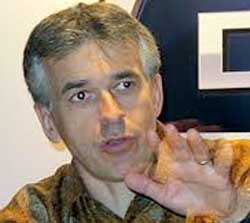
Says Cobee: "We want to build the Go in SA. The country has everything it needs to be the manufacturing powerhouse of sub-Saharan Africa. But there is a difference between theory and reality. I am a big fan of SA but the economic and labour equation is not right at the moment."
The BMW SA plant is only a few blocks from Nissan's own plant and the two new models from manufacturers would have brought additional jobs to the area. In BMW SA's case, the Rosslyn plant would probably have been the only one in the world to build the unnamed new car - leaving no scope for stoppages.
In most cases, SA plants get only a small share of global production so that, in an emergency, volumes can be switched to other sites around the world.
These two won't be the last to consider the scale of their SA operations. "To be successful," says Powels, "companies must offer competitive costs, top quality and absolute reliability.
"Can you meet the production and delivery schedule as promised? If not, you won't be competitive anywhere in the world. The same applies to other companies, whether they are building for Germany or Chad or, indeed, for the domestic SA market. You don't have to be competitive to export," says Powels. "You have to be competitive to survive."
Powels, whose company builds the Polo and Polo Vivo at its Uitenhage, Eastern Cape, headquarters and counts Japan and the UK among its main markets, is already talking to VW in Germany about the next generation of vehicles to be built in SA. "We have to make a decision this year," he says.
There is no question of disinvestment but Powels says international spending decisions are inevitably influenced by local conditions.
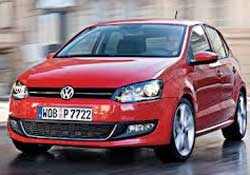
Germany, he says, understands that SA is a young democracy and is struggling with developmental issues. "You can't expect to solve everything in 20 years." But, despite government, labour and big business all saying they want to grow the economy, actions often don't support words.
"We are not positioning ourselves seriously," he says. "Some overseas investors are beginning to say you [in SA] are not acting in a manner that shows you are serious about growing your country and economy. Meanwhile other developing countries are making the right efforts," he adds.
"As soon as we hit an obstacle, strike action follows," says Powels. "It's an incredibly blunt instrument. You can't do complicated surgery with a butcher's knife."
"The next step, if we don't become more serious, is that big multinationals will become more circumspect, more cautious about investing here. They will invest less and we won't grow as much as we should. There will be lost opportunities," Powels warns
Toyota SA President Johan van Zyl says the motor industry must work hard to dispel the notion that it is strike-prone. "Having that sort of label destroys jobs and investments." Since the car manufacturing strikes, the five-month platinum strike and the Marikana massacre, foreign investors will pay close attention to SA's labour in future.
Van der Merwe says unions must accept that actions always have consequences. "The SA and sub-Saharan Africa markets may have good long-term prospects but they are not so big or so important that the usual rules of economics don't apply. Look at Australia, where vehicle manufacturing dates back more than 75 years and the motor industry is the biggest non-mining industrial contributor to GDP," he said.
Van der Merwe went on to say tht despite these two apparently compelling facts, the Australian industry is likely to die in three years. "Toyota, General Motors and Ford, the three remaining mass manufacturers, have all announced they will disinvest before the end of 2017. Some heavy vehicle manufacture will continue but, from 2018, Australia will import all its cars and pick-ups," he said.
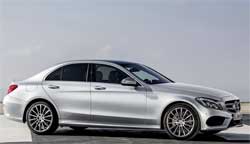
There are many dissimilarities between Australia's and SA's motor industries. The former has few exports and 5% tariff barriers against imports and the government has signed a series of free-trade agreements with Asian competitors that have left Australia's car manufacturing sector defenceless against cheaper, more efficient rivals.
To make matters worse, for the past 20 years or so, successive governments haven't been sure if they want a motor industry. Policy has been uncertain.
SA, by contrast, has 25% protection, exports most of the vehicles it builds and has policy clarity. The export-focused Motor Industry Development Programme (MIDP) ran from 1995 to 2012, and now the production-based Automotive Production & Development Programme (APDP) will continue until 2020 and probably beyond.
What the two countries do have in common is high labour costs and, until recently, a naive belief among many in government and labour that the motor industry is here for ever. The Australian industry demise should put that idea to rest.
Most motor companies have excess capacity in other factories around the world. Volkswagen has just announced plans to build two new assembly plants in China.
Some union leaders, however, cling to the idea that their actions will have no impact on investors. But foreign companies find it hard to countenance Numsa's demand for annual pay negotiations, rather than the current three-year agreements. That would surely mean even more strikes, they say.
Some industry executives have likened strikers to lemmings rushing to their doom. Equally, one is reminded of the quote by a British politician, suggesting that members of a minority UK party pushing for a pact with a bigger party were "like turkeys voting for Christmas".
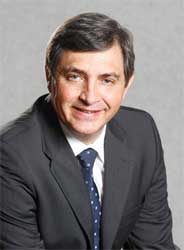
Lemmings, turkeys and strikers: a potent ménage à trois
Government is also frustrated with constant disruptions to what it considers its flagship industry.
As Van Zyl, who is also president of the National Association of Automobile Manufacturers of SA, points out, several plants have been victims of localised labour action since last year.
The MIDP and APDP have not been universally popular - critics say they artificially prop up an uncompetitive, inefficient industry - but few would deny their success in offering investors long-term comfort. Says General Motors SA Vice-President Ian Nicholls: "They have provided the consistency and certainty manufacturers require to make sizeable investment decisions."
Motor companies have embraced the programme. This year they will invest nearly R8bn in production capacity - though the figure is slightly inflated by carry-overs from 2013. Van der Merwe, whose company is still spending the R5,4bn committed primarily to the recently launched C-Class, says his company is as efficient and profitable as any other Mercedes plant around the world. "If a plant does not deliver the same returns as other plants, it will close."
"The APDP, with its minimum 50,000 annual production requirement to access incentives, makes it possible," he says. "Without it, this industry would not be what it is today."
The dream of building 1,2m vehicles annually in SA by 2020 may be receding but the industry has made great strides over the past 20 years. After a 2013 blip caused by strike-related lost production and the extended economic downturn in important foreign markets, production and exports are forecast to return to growth for the foreseeable future. Exports are doubly important at the moment as SA's market for new vehicles is expected to remain weak for at least another year.
Despite labour uncertainty, motor companies say they will keep fighting to grow in SA. The country needs them to. The Eastern Cape - home to General Motors, Mercedes-Benz, Volkswagen, Ford's engine plant, dozens of tyre and components companies and now FAW - is heavily dependent on car manufacturing investment and jobs. So are Durban (Toyota) and Pretoria (Nissan, BMW and Ford).
Nicholls says government, employers and unions will eventually have to ensure a more stable labour environment - because the alternative is too frightening to contemplate.
"There will always be some tension. It is the nature of labour relations," he says. "But we have to stop this constant flexing of muscles. There is still an opportunity to grow this industry in SA and turn it into a real winner. But we must grab it before it's too late," he adds.
Source: Financial Mail via I-Net Bridge

For more than two decades, I-Net Bridge has been one of South Africa’s preferred electronic providers of innovative solutions, data of the highest calibre, reliable platforms and excellent supporting systems. Our products include workstations, web applications and data feeds packaged with in-depth news and powerful analytical tools empowering clients to make meaningful decisions.
We pride ourselves on our wide variety of in-house skills, encompassing multiple platforms and applications. These skills enable us to not only function as a first class facility, but also design, implement and support all our client needs at a level that confirms I-Net Bridge a leader in its field.
Go to: http://www.inet.co.za